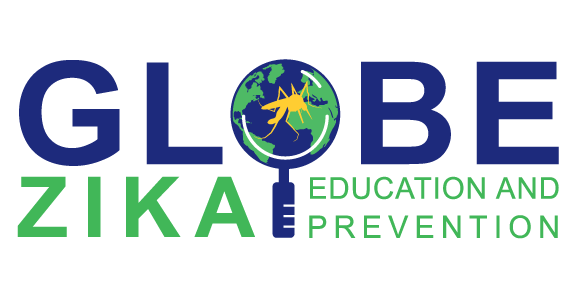GLOBE Mosquito Project - GLOBE Mosquito Project
GLOBE Mosquito Project

NOTE: This project is no longer active. This project content remains available for informational purposes. If you have any questions about this project, please contact the GLOBE Implementation Office.
Following an outbreak of the Zika virus across Africa, South America, Southeast Asia and the Pacific Islands, the U.S. Department of State turned to GLOBE to develop a unique education project to help prevent the spread of Zika and other mosquito-borne diseases worldwide.
Beginning in May 2018, the GLOBE Zika Education and Prevention Project enlisted thousands of students, teachers and communities to collect data on mosquitoes for a global mapping project and connect with their community public health officials to disseminate educational information. This project had an ambitious target of adding 100,000 new measurements to the GLOBE database by the end of the program, and it exceeded this goal by the end of March 2021, with over 200,000 new measurements collected.
The Zika Education and Prevention Project provided training to teachers, public health officials, citizen scientists and students in 30 countries. Throughout the project, trainees learned how to:
- Collect mosquito larvae samples
- Identify the types of mosquitoes that will develop from the larvae
- Map their locations using the Mosquito Habitat Mapper in The GLOBE Program's app, GLOBE Observer
- Upload their data into the GLOBE database
Impact
The GLOBE Zika Education and Prevention Project worked with citizen scientists, public health officials, teachers and students to safely collect larvae samples in three GLOBE regions. As a result, there are now self-sustaining, regional networks with GLOBE funding in:
Africa: Benin, Burkina Faso, Cameroon, Nigeria, Senegal, Togo and Uganda
Asia and the Pacific: India, Marshall Islands, Micronesia, Palau, Philippines, Thailand and Vietnam
Latin America and the Caribbean: Argentina, Colombia, Costa Rica, Dominican Republic, Guatemala, Paraguay, Peru and Suriname
Furthermore, GLOBE has received additional mosquito data from 75 different GLOBE countries through the support of local communities. Because of the engagement from these communities, trainees are helping public health officials and professional scientists make important decisions about how to control the spread of the Zika virus and other mosquito-borne infectious diseases. Check back soon to see the full results of the Zika Education and Prevention Project and learn how members can continue to participate in GLOBE initiatives.
The GLOBE Zika Project Video Summary
With the video below, watch how students and communities worked together to propel the GLOBE Zika Project forward.





